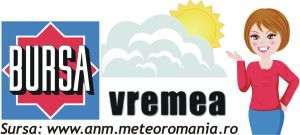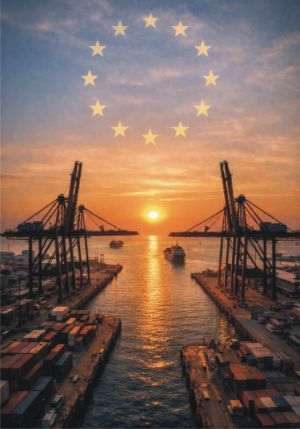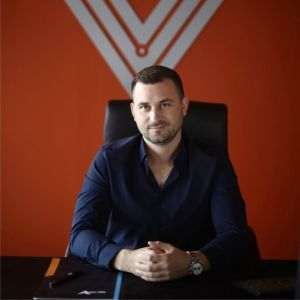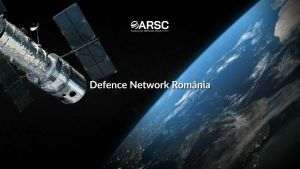Emil Boc, the mayor of Cluj-Napoca, has set new goals for the development of the city. One of them is the fulfillment of the European Union's requirement to be a climate-neutral city. It also has in mind some major investments, such as the metropolitan train and the subway, the metropolitan beltway and the connection of Cluj to the Transylvania highway. The mayor of Cluj spoke, in an interview given to BURSA, about the objectives he has for the new term, about the biggest investments he planned for the coming years, as well as about the "smart city" projects that he wants to carry out. Other topics addressed by Emil Boc are how the pandemic affected this year's budget and the projects he had to give up in the context of the pandemic.
Reporter: What are your plans for your new term?
Emil Boc: We have a major goal for the next period: to keep Cluj in the top spot, which translates into having a healthy city, with the best quality of life, innovative, green, inclusive, where no one is forgotten and no one is abandoned. A city where you can enjoy living and working. I want to meet the European Union's requirement to be a climate-neutral city by 2050. It is a new goal that we aim to achieve as soon as possible. Specialists will tell us when it will be possible and what the steps to get there are. We are planning measures related to the thermal rehabilitation of residential buildings and public buildings, the expansion of green areas, the reduction of polluting vehicles, green mechanisms and technologies to replace polluting technologies. That is how we are going to reach the best quality of life.
Reporter: What are the biggest investments you intend to implement in the coming years and what do you consider to be the most difficult project?
Emil Boc: We have some major investment projects in Cluj-Napoca. All this means, practically, the development of the metropolitan area, because the development of the city can no longer be thought of strictly with the current administrative borders. These projects are the metropolitan train and the subway, the metropolitan beltway and the connection of Cluj to the Transylvania highway. The project of the subway and the metropolitan train are of paramount importance, in view of the economic and social development in the medium and long term. In order to maintain economic effervescence and to streamline and optimize the results of steady growth in recent years, continued investment in urban mobility is needed. This integrated project aims to shape the future of Cluj for more investments, for more well-paid jobs and for ensuring the mobility of the inhabitants of Cluj and the entire metropolitan area. The first component is related to the metropolitan train. The advantage is that we already have infrastructure on the ground, we have the railway, as well as the project of the Ministry of Transport for the modernization of the railway between Cluj and the Bishopric of Bihor. Also, the metropolitan ring road and the connection of Cluj to the highway, a project carried out in partnership with the Romanian Government, will remove all unnecessary traffic from the city.
Regarding the question of difficulty, I do not think that one project is more difficult than another, but I can say that all of them are complex projects, given that they are multi-annual projects, which involve many stages and the involvement of many institutions and resources, but I am convinced that they will be successfully implemented all the way through, with our vision regarding the long-term development of Cluj being the correct one.
Reporter: What "smart city" projects will you be conducting?
Emil Boc: Cluj-Napoca City Hall aims to use technology for the comfort of citizens and improving daily life in the city and continues the digitalization of the municipality. The citizens of Cluj have at their disposal 175 administrative operations that can be performed online and which no longer require the direct interaction of the citizen with the civil servant, including ways of paying local taxes, ways of paying fines, submitting various types of applications online, issuing documents online, fiscal administrative documents that can be communicated to citizens in electronic format by email.
We also implemented the Blue Ticket, an online procedure through which over 500 civil servants from all Cluj-Napoca City Hall services provide relations with the online public, in order to facilitate an efficient resolution of requests. By mid-2021, our goal is to have all permits and authorizations issued by Cluj-Napoca City Hall be issued in digital format. Also, through the project "Increasing decisional transparency and simplifying administrative procedures for citizens - ANTO - CIIC", financed by the Operational Program Administrative Capacity 2014-2020 (POCA), we will develop the virtual civil servant "Antonia".
Reporter: What sector is Cluj a European hub for?
Emil Boc: Cluj-Napoca is a city of innovation, focused on research, development and IT. The development direction of Cluj, positions us as a strong hub of innovation and a city of clusters, but also as a center of excellence for the creative industries. I also want to remind you that the city of Cluj-Napoca qualified for the final of the competition for the title of "European Capital of Innovation 2020", along with other European cities such as Milan, Valencia and Vienna. Even though we did not win that title, the fact that our city reached the final of the competition and was the first city in Eastern Europe to reach the shortlist in the competition reconfirms the size of Cluj as a city of innovation, focused on research, development and IT and the use of technology to increase the quality of life of all citizens of the municipality.
Cluj-Napoca is also a European hub in the field of creative industries. In this context, we are implementing a project worth 5.6 million euros - Cluj Future of Work, together with the Cluj Cultural Center, in a consortium with eight other local organizations. The project aims to analyze and test scenarios that allow the cultural, academic, business and administrative sector and, in general, the community to prepare for the changes that the next 20 years will bring to the labor market.
Reporter: Referring to the "smart street" project - do you want to resume it, in other words to turn other streets into smart streets as well?
Emil Boc: Some streets are partially being turned into areas for pedestrians, others will be shared space, we are taking the cars away from the sidewalks, we are finding more room for pedestrians. As a result, we will ensure fluency for car traffic, as much as necessary, but we are also creating room for pedestrians and bicycles.
In recent years, Cluj-Napoca City Hall has started extensive urban redevelopment projects in various areas of the city center, projects based on the principles of "walkable city" and "green city". In the medium and long term, through the "walkable city" investment program, the City Hall has proposed that such projects gradually reach all neighborhoods of the city. Every district of Cluj is part of this city and, therefore, everyone in this city will have access to everything that means quality. I would like citizens not to panic and understand that when we talk about pedestrianization, it does not mean that traffic will be restricted everywhere. Some streets are partially transformed into spaces for pedestrians, others will be shared space, we take cars off the sidewalks, we find more pedestrian space. In conclusion: we will ensure car fluency as much as needed, but we will also create space for pedestrians and bike lanes.
Reporter: In what area did you intend to invest most of your budget for next year?
Emil Boc: We will continue to focus on co-financing European projects. For the citizens of Cluj, European funds mean increasing the quality of life. As I have already pointed out, from this perspective we have focused on the non-polluting side, the green side and alternative mobility to personal vehicles, so as to offer a better quality of life to our citizens by arranging more pedestrian spaces and by green public transport. The quality of life in Cluj-Napoca follows the general directive of Europe, based on three dimensions: green, digital and resilience. We have already started an extensive investment program in arranging new green spaces, called "Green Cluj". Through this program we aim to arrange over 100 hectares of new green spaces, over 100,000 new trees, the installation of sensor networks and stations for measuring air, water and soil quality, as well as the realization of green lanes of sustainable mobility on the banks of the river in the metropolitan area. The future of mobility is also shaped by non-polluting public transport: today already half of the city's transport fleet is non-polluting, but we want 100% of it to become non-polluting. To that end, Cluj-Napoca City Hall continues to put into circulation trolleybuses, trams, electric buses, but we also have major projects for the subway and metropolitan train.
Reporter: How has the pandemic affected the budget for the year 2020?
Emil Boc: We live in exceptional times and we must be united as a community. Our city, like the whole country and the whole world, is struggling to overcome the medical, economic and social effects of the coronavirus pandemic. For example, this year Cluj-Napoca City Hall made additional allocations to increase the capacity of the Municipal Clinical Hospital to manage the COVID-19 health crisis by purchasing medical equipment and medical protection. A project for European funds was submitted for the recouping of the amount of over 16.71 million lei.
Reporter: Were there projects you had to give up in the context of the pandemic?
Emil Boc: We postponed the completion of a project and redirected the money, approximately 16 million lei, to education and health. We're talking about the Lomb road, which will facilitate access to the Regional Center of Excellence for Creative Industries.
Emil Boc: What are the ingredients needed for a city that wants to attract a large number of investments?
In Cluj-Napoca we apply public policies aimed at creating new jobs and providing tax breaks for investors. One lever for supporting investors is the provision of tax breaks through a de minimis aid scheme for investors in industrial parks and for supporting the construction of energy class "'A" buildings. Also, to support potential investors, we have developed the project www.clujbusiness.ro, a portal designed to increase the visibility of Cluj on the map of European cities open for investment, an information platform through which investors get quickly, pragmatically and relevantly the answers they expect to the question "Why is Cluj-Napoca a premium investment destination? "
Reporter: What do you think are the strengths of Cluj that led to its development?
Emil Boc: The strengths of the city are administrative or infrastructure-related, but first and foremost are those directly related to the people - the people of Cluj are hardworking and well-educated, and the City Hall invests at least 20% of the taxes collected each year in education. Supporting education is a priority for the municipality of Cluj, and investing in education is the safest investment we can make for the future of our community. We are a city blessed with talented people, brave entrepreneurs, visionary academics and especially citizens who are willing to participate in the life and development of the city.
We are open to any initiative that could improve the daily life of the citizens and the work processes of the institution, which, in the end, will also be for the benefit of every Cluj resident. We also have an extremely useful tool in this regard, the Center for Innovation and Civic Imagination (CIIC), which is practically the place where representatives of the local public administration, citizens and specialists from various fields can meet and discuss urban transformations and challenges. Every Cluj resident can come up with a valuable idea or initiative.
Through CIIC we have encouraged the participation, the involvement of the citizens in what the development of Cluj means and we try to make the best use of the creative resources of the community.
Reporter: Thank you!
























































